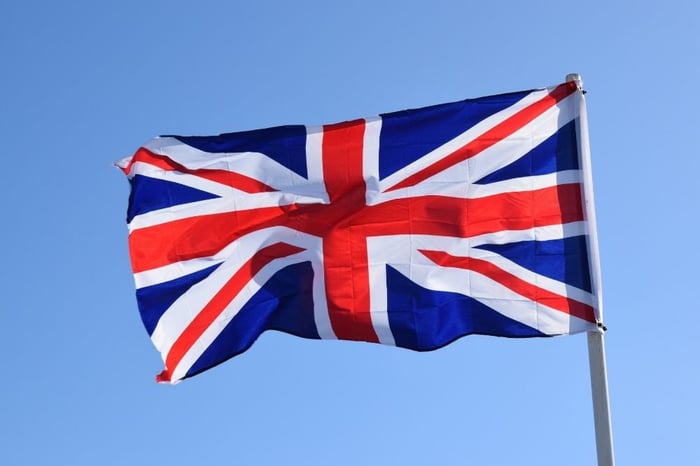
Life as a Newcastle Medical Student
Ranking
The MBBS degree at Newcastle University is one of the most highly ranked medical degrees in the UK; it ranked fifth in the Guardian University Guide in 2019 and seventh in The Times / Sunday Times Good University Guide 2019. Medicine at Newcastle is also one of the most highly regarded medical degrees worldwide; it was ranked in the top 100 in the medical category QS World University Rankings by Subject 2019. The programme has been professionally accredited by The General Medical Council.

Entry criteria
All applicants apply for the MBBS course at Newcastle University through the Universities and Colleges Admissions Service (UCAS). In one admissions cycle, students can apply to up to four medical programmes with the deadline for admission being 15th October.
The academic criteria for the undergraduate A100 five-year degree is either AAA in A-Level or a minimum of 38 points in International Baccalaureate. The entry requirements for the A101 postgraduate programme are individualised to each applicant. However, students are expected to achieve a minimum of a second-class honour’s degree, integrated Master’s degree or be a practicing healthcare professional within the NHS or equivalent. All students who are applying for both the five-year A100 course or the four-year A101 programme will be required to sit the UK Clinical Aptitude Test. For students where English language is not their first dialect a minimum score of IELTS 7.0 is required with the student obtaining a minimum of 7.0 in each of the four test components. All successful medical students will be required to undergo an enhanced Disclosure and Barring Service check. All medical students must be able to show proof of immunisation against a list of communicable diseases listed by Public Health England.
Tuition fees
For UK and EU students in 2019, the tuition fees for the five-year A100 MBBS programme is £9,250 per annum. For many UK medical students, the NHS pays for the final year of study. For international students, the tuition fees are £33,600 per annum.

Course structure
Medicine at Newcastle has an integrated approach; students are able to obtain early clinical experience through general practice and hospital visits in the first two pre-clinical years alongside lectures and seminars. This allows students to experience contact with patients from the beginning of the course and build upon communication and examination skills learnt in the clinical skills laboratory. The MBBS degree has a spiral curriculum meaning that knowledge and skills are refreshed and built upon over the length of the programme.
In the five-year undergraduate course year one and two involves being taught key subject areas in medical sciences (including physiology, pharmacology, biochemistry, pharmacology, anatomy) bioethics, professionalism and clinical skills. Real patients and actors are brought in for clinical skills sessions to develop your core skills in communication, examination and recognising clinical signs. Anatomy teaching involves using cadavers. Students in small groups are assigned a long-term condition patient in their first year; student undertake home visits to gain further understanding of the impact of the condition on the patient, the symptoms and signs as well as the the clinical management of the patient. Second year students are assigned a pregnant lady; students visit her with her home, attend clinic visits and have the opportunity to follow the journey from gestation to birth. These long-term, personal experiences with patients and visits within their community enable students to build a deeper patient rapport and gain greater awareness of the economic, social and psychological factors impacting a patient’s wellbeing.
Fourth year is split into three parts: The first part involves gaining specialist knowledge through teaching from experts in a particular medical or surgical subject field. Fourth year requires students to understand complex scientific principles alongside being able to apply this knowledge clinically with case-based learning in seminars. Secondly, undertake student selected components whereby the student chooses three placements, where one can be nonclinical (such as global health, pathology or medical law), in subject areas of particular interest to the individual. There is a broad spectrum of placements to choose from including working alongside the ambulance team. Some students can choose to undertake student selected components outside the north east and there has been recent opportunities to travel to Ghana and Cambodia. This freedom of choice enables students to gain unique skills and develop career awareness. Students may undertake a clinical audit, create a presentation and write a reflective essay during the student selected component period. The final part of fourth year is the medical elective; students undertake an eight-week placement in UK or abroad in any medical or surgical speciality. The eight-weeks can be split up into two specialities or locations. The medical elective allows students to experience different healthcare systems, different cultures and potentially see health conditions that they would not in the UK.
Year three and five involve clinical placements. As Newcastle University is a partnered with Northern Region NHS, students must be prepared to be placed in hospitals and general practices across the region distant from central Newcastle including Middlesbrough, Durham or Carlisle. This wide geographical range alongside access to an extensive 3.5 million patient population results in a wealth of clinical teaching opportunities. Third year students undergo Foundations of Clinical Practice first which comprises of clinically based teaching on core medical and surgical conditions spread over twelve weeks. Students have clinical case-led teaching seminars alongside developing their clinical skills on patients with specific conditions related to teaching topic. For the remainder of the academic year, students then undertake placements in Women’s Health, Child’s Heath, Long Term Conditions, Infectious Diseases and General Practice. Fifth year involves clinical placements which build upon the clinical skills of previous four years of training to ultimately produce a foundation doctor with higher level skills required to be safe and competent. Fifth year students are usually placed in a different Northern region compared to fifth year to enhance variety; greater access to patients belonging to a spectrum of socio-economic groups, hospital sizes and spectrum of urbanisation.
Newcastle University also allows students to intercalate either after their second year, third or fourth year of medical school. In brief, students after second year can undertake a Bachelors of Science degree. However, most commonly students choose to intercalate after their fourth year enabling them to undertake a Masters degree. Intercalation can be undertaken at Newcastle University which is ranked 16th in the UK for research power according to the Research Excellence Framework which accesses the quality of research undertaken in the UK. There is a wide variety of Masters degrees or students have the opportunity to intercalate elsewhere in the UK or abroad.

Living in Newcastle
Newcastle University is spread out across Newcastle city centre. The beautiful city centre has the famous Grey’s monument which overlooks Grey’s street, famous for its Georgian architecture, was voted in 2010 by BBC Radio 4 listeners as the “Best street the UK”. Close by is Grainger market where locals and students alike can by fresh local produce in a grade 1 listed covered market. You can wander down to the Quayside where you can find the spectacular view of the Millennium Bridge, the Tyne bridge and the low-level Swing Bridge which cross the River Tyne and interlink cities of Newcastle and Gateshead. Along the Quayside visitors can visit the Baltic centre for Contemporary art, the impressive performing arts centre called the Sage or have a drink or a bite to eat at one of the many bars and restaurants including By The River Brew Co which are shipping containers placed under a bridge where there is a microbrewery and street food venders overlooking the Newcastle skyline. On Sundays, the Quayside comes alive for the weekly market where people can by local produce, jewellery or vintage clothes.
Further along the river, is Ouesburn, a trendy area of Newcastle bursting with independent creative venues including an art gallery called The Biscuit Factory or Cobalt Studios where people can undertake life drawing classes in the daytime and dance to a wide variety of music genres with local Djs on the weekend. Star and Shadow is also an independent none for profit cinema closeby. The famous Tyne bar is one of Newcastle’s live music venues. If you love brunch, there any many fantastic vegetarian and vegan eateries in this area.
If you love football, students can get discounted tickets at the renowned St James Park to watch the Magpies in a local game and mix with the locals at famous pubs called the Strawberry and the Trent Inn. If rugby is more your thing, you can watch the Falcons play a game or two.
One cannot write a blog about being a student at Newcastle without mentioning the nightlife. If you want a classic Geordie night out go to Bijoux and Club Trop, mixing with fellow students and dance in Soho, or if you fancy seeing some world leading DJs go to one of the biggest nightclubs in the UK called Digital. World Headquarters is a North East famous independent night club which celebrates unity, diversity and is driven ultimately by the music and is a must visit.
If you love the outdoors, in the heart of Newcastle is Exhibition Park and the Town Moor which holds a weekly 5km free Park Run. There is the beautiful Wylam brewery which overlooks the lake. There is also Jesmond Dene which has a walk way parallel to a running stream through the heart of Newcastle, with a waterfall, old flower mill and waterfall. Further afield, you can easily get the metro to the coast and sample fish and chips at the famous Rileys Fish Shack or go swimming or surfing at Tynemouth. Tynemouth as a weekend market held within the Victorian Train station. If you fancy escaping into the countryside Alnwick, Kielder Water or Bamburgh Castle which overlooks a beautiful deserted beach. Only a train ticket away is also Durham; the beautiful city contains Durham Cathedral which features in Harry Potter and has wonderful light shows during the festive period.
Newcastle University Students Union
If you want to meet like minded people outside your course, with over 160 societies to choose from you will be able to find something that takes your fancy in your down time. There are also 65 sports clubs which are run through the athletics union which for many sports offer entry at a range of abilities. Newcastle University Students Union also offer many volunteering opportunities and give great support in terms of CV skills, pastoral and financial advice.
Conclusion
If you are lucky enough to be accepted to study Medicine at Newcastle University, as someone in their fifth year, I can guarantee you won’t look back. Not only is the course engaging, with teaching from experts in their field and access to incredible hospitals such as the Royal Victoria Infirmary and Freeman, you also get to live in a vibrant and fun city. The university itself has plenty to offer in terms of sports, societies and events you have a wealth of opportunities to enjoy every aspect of university life.
We hope this blog post was helpful and if you would like more help with your application for medical school then don't hesitate to get in touch with us at [email protected].



